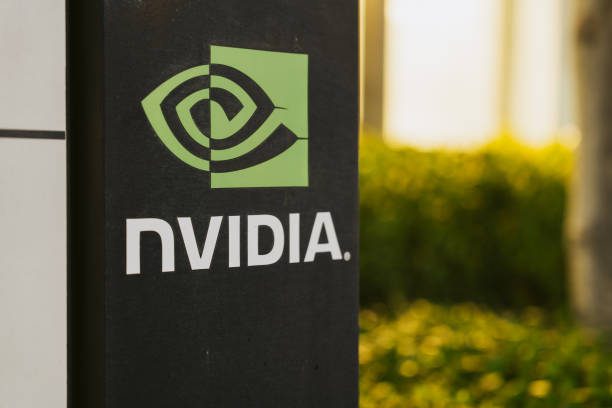NVIDIA CEO Jensen Huang recently shared a bold vision for artificial intelligence (AI), emphasizing how it will revolutionize various fields, from science and engineering to business operations and chip design. Speaking on the No Priors podcast, Huang made it clear that AI’s role in transforming industries is only beginning. “Nothing will be left behind,” he said, adding that NVIDIA’s goal is to integrate AI into every sector, ensuring that its benefits are felt across the board.
In his conversation, Huang predicted that within a couple of years, AI will underpin virtually every scientific and engineering breakthrough. He went on to discuss how AI will reshape the workforce, especially in critical fields such as chip design, marketing, and SaaS (Software as a Service) platforms. His outlook emphasizes the depth of AI’s influence, suggesting that industries will see unparalleled advancements due to AI-powered technologies.
AI’s Role in Science and Engineering: A New Era of Discovery
AI has already left its mark on science, but Huang predicts a more universal and integrated approach to scientific and engineering developments. According to Huang, “There’s not going to be one paper, one breakthrough in science, [or] one breakthrough in engineering where generative AI isn’t at the foundation of it.” This comment captures the growing reliance on AI across scientific disciplines. From quantum computing and quantum chemistry to advancements in materials science, AI is becoming an indispensable part of the scientific process.
For readers interested in the latest updates on AI-driven technologies and their impact on science and industry, check out our comprehensive AI and tech news section. As Huang elaborated, AI’s influence extends beyond theoretical advancements, changing the practical approaches researchers and engineers use to solve problems. Generative AI, for example, can simulate and test hypotheses at a scale and speed previously unimaginable.
AI’s current applications in computer vision and machine learning have already demonstrated its power. Huang reflected on the early breakthroughs in these areas, recalling NVIDIA’s initial successes with computer vision and object recognition. Today, AI’s capabilities have grown to superhuman levels in certain tasks, and Huang sees this as only the beginning.
Redefining Chip Design with AI
A major focus of Huang’s discussion was the transformative role AI is expected to play in chip design, an area of immense importance to NVIDIA. Huang mentioned that NVIDIA already employs AI-driven chip designers and software engineers. By using AI to optimize chip design, NVIDIA aims to address the complex challenges associated with creating high-performance, energy-efficient chips.
Huang envisions a future where AI engineers, trained by NVIDIA in collaboration with partners like Synopsys and Cadence, will play a central role in chip development. These AI engineers will be able to take on complex projects, enabling NVIDIA to scale its operations without the limitations of traditional human resources. For example, when there is a high demand for chip design, NVIDIA could “hire a whole bunch” of AI-trained engineers on demand.
This vision not only revolutionizes NVIDIA’s approach to chip development but also sets a precedent for other technology companies. For those interested in how this AI-driven future could reshape the hardware landscape, explore more in our latest articles on AI hardware innovations.
The Future of SaaS: AI as a Goldmine
Huang also highlighted the tremendous potential of SaaS platforms when combined with AI. Rather than being disrupted, he believes SaaS platforms will thrive in an AI-enabled environment, calling them “a gold mine.” According to Huang, the future will see the rise of AI agents that specialize in specific SaaS platforms, such as Salesforce and SAP, making them even more valuable for business operations.
In this vision, AI agents will work together across various SaaS tools, enabling businesses to solve complex problems and streamline operations more effectively. Imagine an AI system that manages everything from inventory tracking to customer service. Huang’s predictions highlight that by embedding specialized AI agents into SaaS platforms, companies will enhance their problem-solving capabilities and efficiency.
For those interested in how AI is transforming SaaS, read the full article on Analytics India Magazine. As Huang pointed out, these advancements position SaaS platforms not just as tools but as active collaborators in business operations, driving growth and efficiency through AI.
AI in Business: New Opportunities and Challenges
Huang envisions a future where AI is woven into nearly every business function, from supply chain management to customer relationship management. For NVIDIA, AI-driven systems will become a core part of their operations, creating “an ecosystem where every function is AI-enhanced,” as Huang explained. He further added that by expanding both biologically and through AI, NVIDIA would continue to be a leader in AI-driven innovation.
Reflecting on the history of AI in business, Huang recalled the early days of computer vision and object recognition, where simple AI applications laid the groundwork for today’s advanced capabilities. Now, with machine learning and generative AI, companies can achieve superhuman capabilities in areas like predictive analytics and autonomous systems.
Transforming Workforce and Career Opportunities in AI-Driven Firms
The rising influence of AI also means a shift in the job market. While tech giants like Google and OpenAI attract top AI talent, NVIDIA’s approach of utilizing AI engineers trained in partnership with Synopsys and Cadence provides an alternative. As more companies rely on AI to handle complex tasks, new career paths in project management, data analysis, and AI integration will emerge within AI-reliant firms.
This shift suggests that job seekers should look toward companies that leverage AI partnerships. For those wanting a career at the intersection of AI and business, companies working with development studios offer exciting opportunities. As Huang explained, the demand for AI expertise in traditional roles such as data analysis and project management is growing, providing new avenues for professional development in a high-growth industry.
The Road Ahead: Universal AI Integration
In closing, Huang emphasized the universality of AI’s potential: “We’re going to take everybody with us.” His words underscore NVIDIA’s commitment to making AI accessible across industries and job functions. As AI continues to transform fields from quantum chemistry to chip design, NVIDIA is at the forefront, driving change that will affect individuals, companies, and entire industries.
With its broad applications, AI will undoubtedly reshape not only the tech industry but every sector. Those interested in the future of AI’s impact on business, science, and society can follow our coverage for the latest insights on how AI continues to evolve.
This article captures NVIDIA’s CEO Jensen Huang’s vision for AI’s transformative role across sectors, highlighting AI’s future in chip design, SaaS, and beyond.






